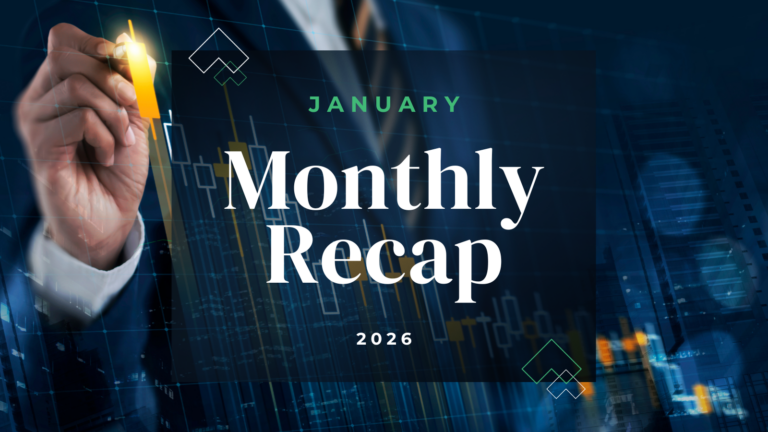Aoifinn Devitt – Chief Investment Officer
Yesterday was May 1, also known as International Worker’s Day, which was a timely reminder to note the workers that have been shoring up the still-resilient economy and are continuing to enjoy low unemployment rates relative to their history. We have been talking a lot about workers in recent months, as the robustness in labor has been a sticking point for the Fed as it looks to the health of the economy, and announcements of mass tech layoffs have punctuated news flow. Just recently, it has seemed that this robust picture is starting to fray at the edges, as US job openings dropped to their lowest level in nearly two years in March and layoffs rose.
As we look to the Fed decision this Wednesday, we are, as is now typical in 2023, wading through a mass of sometimes contradictory datapoints. The softening labor data has accompanied evidence of slowing inflation, while slackening GDP growth, falling oil prices, and cautious company outlooks are dovetailing to the narrative of a slowing economy. The problem is that inflation retains the element of surprise, and just when it appears to be getting more muted, a stubborn number will appear to muddy the narrative.
That wasn’t it for recent news flow, however. Last week, we spent some time discussing the debt ceiling and how the deadline for resolution of issues was being pulled forward due to lower tax receipts and greater strains on finances. This chatter has not abated, and in fact Secretary of the Treasury, Janet Yellen, suggested a new urgency around the talks and that June 1st was a more appropriate deadline for raising the ceiling.
This week, we have moved from the ceiling to the floor – and the floor that US regulators seem content to place under bank failures. The weekend saw a frenetic set of negotiations that ran past the Sunday midnight deadline to seal a solution for the beleaguered First Republic bank, and on Monday morning, investors awoke to the news that the bank had been taken over by JP Morgan.
This “strong” solution for the bank differed from the Silicon Valley Bank (SVB) saga in that the FDIC did not intervene first and finding a buyer – urgently – was seen as a preemptive move. However, there were other important similarities in the outcome for both banks – both banks had practiced the art of focusing on gathering deposits at a time when rates offered on deposits were comparatively low. First Republic prided itself on its “white glove”, concierge-style service for its clientele, believing that building this customer loyalty would trump the slightly less favorable economics that low-rate deposit accounts began to represent. As the interest rate cycle entered what has become the steepest set of rate-rises in recent history, the return on bank accounts started to pale in comparison to rates that could be obtained in short term government bonds and money market funds, prompting investors to vote with their feet. Ultimately, the online ease of all modern banking – not just that with a white-glove service – made the decision to defect a low friction one, and customers defected en masse.
Both banks were ill-prepared for a cycle of rising rates – particularly in the case of SVB, which had hoarded low-risk government securities and was then forced to mark them to market – which is even more surprising given how well telegraphed the direction of rates had been. Was it that these institutions were slow to adapt? Or was it that it could not have been possible to adapt – to turn the supertanker that bank business models and capital structures can be – in the course of a year? And if it could not have been possible to adapt, should the Fed have anticipated the effect that their tightening agenda would have had on financial institutions?
There is a fascinating podcast by Tim Harford [1] (otherwise known as the Undercover Economist) which describes the doomed inventions of the inventor Thomas Midgley which involved adding lead to gasoline, inventing CFCs and another wayward invention that ultimately caused his own death.
Like all of these podcasts, this is a riveting tale. The moral of this story was that these dire consequences may have been unintended but were not necessarily unanticipated. At the time, the fact that the consequences were unintended was used to grant him – and the institutions that profited from these inventions – a “pass” to avoid responsibility later. He takes issue with this “pass” and argues that even if consequences are not “intended” but if they could be “anticipated”, the perpetrators should be held accountable.
This echoes something that I have been recently mulling about: the effect of the steep rate rising cycle on banks – clearly, four bank failures were not the intended consequences of the rate hiking cycle. But could they have been anticipated?
Arguably, they could have been. For months, markets and the Fed itself focused on the transmission effect of raising rates – whether consumption was being affected, and whether economic activity was being suitably subdued. This scrutiny seemed to expect real-time results, while in actuality, all monetary tightening has a lagging effect, something that was known. The adage goes that the Fed tightens interest rates until something breaks – and now, the open question is whether these bank failures are the things that have broken? If the rate rising cycle continues – as it is expected to – then clearly, the bank crisis is not (yet) considered sufficient to halt the trajectory.
But let’s look a bit more closely at the fallout from this weekend’s news. With the JP Morgan purchase of First Republic, JP Morgan now controls over 10% of US deposits, but this was permitted by a waiver of the guideline around excessive concentration. It would seem unusual if the same circumstances facing First Republic were not being faced by scores of regional banks around the country. They had built business models around falling rates, and then the music had stopped. All of a sudden, the economy was marching to a different beat and the banks were forced to keep dancing. But the lights were on and it wasn’t as much fun anymore.
All of these banks offer the same ease at moving money in and out and as both the SVB and First Republic showed; the mere hint of trouble can spark an irretrievable loss of trust and confidence by depositors and capital flight. Therefore, for some banks, the fears will be existential, while for others, renewed regulatory scrutiny is likely to result in a more conservative approach to credit extension at the very least.
In the past, banks retreating from providing credit have had a systemically tightening effect on the economy, but in today’s markets, private credit is approaching 20% of credit markets – offering an alternative to bank financing, albeit a pricey one.
So, we do not yet know the impact on markets of the latest banking crisis. One thing is certain though, and that is that we should be very wary of the comforting voices suggesting that the worst is over. These were in many cases the same voices that failed to pivot and adapt to a shifting economic backdrop. And let’s not forget that shareholders in both banks were wiped out despite the fact that both banks ultimately found a safety net. This is already serious collateral damage, and perhaps there is more to come.
As we write, markets remain surprisingly resilient given the magnitude of this week’s headlines. Sometimes, it is true that investors cannot understand large numbers [2] or maybe it is a distraction of other more tangible things like tech and AI.

All we do know is that it will likely be an exciting month of May.
Sources:
1: https://timharford.com/2022/11/cautionary-tales-the-inventor-who-almost-ended-the-world/
2: https://www.ft.com/content/1a19fcb9-fe64-4371-8922-02e1a8d768e8 – Subscription to Financial Times needed.
© 2023 Advisory services offered by Moneta Group Investment Advisors, LLC, (“MGIA”) an investment adviser registered with the Securities and Exchange Commission (“SEC”). MGIA is a wholly owned subsidiary of Moneta Group, LLC. Registration as an investment adviser does not imply a certain level of skill or training. The information contained herein is for informational purposes only, is not intended to be comprehensive or exclusive, and is based on materials deemed reliable, but the accuracy of which has not been verified. Trademarks and copyrights of materials referenced herein are the property of their respective owners. Index returns reflect total return, assuming reinvestment of dividends and interest. The returns do not reflect the effect of taxes and/or fees that an investor would incur. Examples contained herein are for illustrative purposes only based on generic assumptions. Given the dynamic nature of the subject matter and the environment in which this communication was written, the information contained herein is subject to change. This is not an offer to sell or buy securities, nor does it represent any specific recommendation. You should consult with an appropriately credentialed professional before making any financial, investment, tax or legal decision. An index is an unmanaged portfolio of specified securities and does not reflect any initial or ongoing expenses nor can it be invested in directly. Past performance is not indicative of future returns. All investments are subject to a risk of loss. Diversification and strategic asset allocation do not assure profit or protect against loss in declining markets. These materials do not take into consideration your personal circumstances, financial or otherwise.







